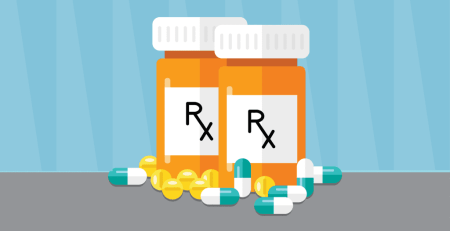Planes, trains and prescription pills: On travelling with your medications
Winter travel to exotic locations may be on your New Year’s list, but if you’re taking medication for a chronic illness, make sure to find out what you need to travel across borders with your medications.
Both the US and the Canadian governments provide travel guidelines for people who must take their medications with them. Information varies and isn’t always up to date online, so the wise traveller should call the numbers provided to get the most accurate information.
When you plan a trip, plan your medications too!
Once you know where you’re going (hitting the slopes or hitting the beach), have a conversation with your physician and pharmacist about managing your medications.
Your doctor can advise you on what you need to look out for. As an example, some medications may make you more sensitive to the sun or others may not work well in combination with alcohol or certain foods. Your doctor may also speak with you about what you need to avoid when it comes to allergies and sensitivities to other medications (if applicable). Finally, your doctor may also provide you with a letter to carry as part of your travel documents explaining what medications you need and why, especially if you use medical devices and controlled medications, in case any authorities should inquire.
Your pharmacist can give you useful advice on how to travel with your medications, how to store them properly, and what prescription renewals you may need. Chatting with them in advance can also give them the chance to suggest appropriate ways prepare your meds for travel (blister packs, cold packs and so on).
Other things you may want to think about include how you may deal with any medical issues related to your condition that might arise while you’re gone, the standards of care available at your destination, and any dietary concerns you may have related to maintaining your medication schedule.
What are some things you can do to make traveling with medication easier?
- Put your medication in your carry-on or “personal item” (purse or small bag), and not in your checked luggage. This helps ensure you won’t be separated from a necessary medication. Remember, airlines may require you to check your larger carry-on.
- Make sure your prescriptions are in their original packaging so that any travel authorities who may search your belongings can see they are genuine prescriptions. Your pharmacist can prepare blister packs of your medication for convenience when taking shorter trips.
- Don’t put all your medication in one container to save space; this increases the risk that you might mix up your pills and take the wrong one by accident.
- Carry a week’s extra supply to cover you in case of travel delays or emergencies.
- Carry a copy of your medication record in case of emergencies where you are may be unable to explain what you are taking. You may also want to carry a copy of the prescription or a doctor’s note in case of loss or theft. It’s helpful to list the pharmaceutical name of your medication, the brand name and the generic equivalent to avoid confusion about your medicine in other countries should you need an emergency replacement.
- Ask your doctor for a letter supporting your prescription for any controlled substances you may be carrying, including painkillers, stimulants and injectable medications. If travel authorities raise any concerns, this will help you demonstrate and justify your medical need for these items.
- Some countries have limitations on particular types of medications, including over-the-counter medications, that you can bring in. Check your federal government website for advice. Most embassy staff in your country will also provide advice about what you can or cannot take with you when you visit their country.
- If part of managing your chronic disease involves special equipment such as needles, check with the federal agency regulating travel and security in your country to see about the legalities of crossing a border with this equipment.
- Most jurisdictions exclude liquid medications like insulin from your one-litre/quart liquid and gel allowance at air travel security. To avoid delays, carry a separate small bag with medically necessary liquids, and let the security screening officer know what it is. Most airlines and travel agencies provide links for specific information relating to the rules in the countries you are visiting.
Can you bring medical cannabis with you on a trip?
In Canada, citizens can take their medical cannabis with them when they travel within the country. However, you are not permitted to take any form of cannabis, recreational or medical, across the Canadian border to the United States or any other country.
Carrying any amount of cannabis out of Canada or back into the country can lead to you being charged with a criminal offence. If you are charged or convicted, this could lead to your being denied entry to other countries in the future.
Can you get a prescription refilled early before your trip?
So you’re all set: you’ve checked the regulations, you know what you can bring… but then you realize you don’t have enough medication to cover your trip. Now what?
It depends on the type of medication. Many prescriptions, such as those for chronic illnesses like diabetes, can be written for longer periods—three to six months, or even a year. Your pharmacist can issue an early refill (if you have any left) because you plan to travel.
However, some medications may require advance approval from your insurance company for an early refill, particularly when it comes to medication considered a controlled substance. These are drugs federal agencies consider to be at risk for abuse or diversion. Most doctors are able to prescribe a 30-day supply but there may be limits on refills.
What if you have medication problems when you arrive at your travel destination?
If you should lose your medication, have it stolen, or even have it confiscated at the border, report your loss to the appropriate authorities. Both Canadians and Americans can contact their local consular office for help locating a physician or pharmacist for help, and consular staff can also help you if you experience a medical emergency.
An ounce of prevention is worth a pound of prescription refills
Good planning can solve the vast majority of medication-related problems that come up when you’re traveling. There are no perfect guarantees of a trouble-free trip, but when it comes to your health, it’s always best to manage your medication the way you manage your travel tickets: get it done as far ahead of time as possible, and keep it safe at all times.
ADV-Care wishes you a fantastic trip!









